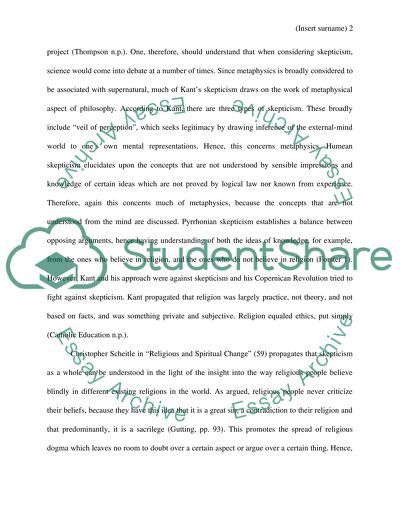Cite this document
(“Stages of Unbelief. What is Skepticism Essay Example | Topics and Well Written Essays - 2500 words”, n.d.)
Retrieved from https://studentshare.org/philosophy/1398779-stages-of-unbelief-what-is-skepticism
Retrieved from https://studentshare.org/philosophy/1398779-stages-of-unbelief-what-is-skepticism
(Stages of Unbelief. What Is Skepticism Essay Example | Topics and Well Written Essays - 2500 Words)
https://studentshare.org/philosophy/1398779-stages-of-unbelief-what-is-skepticism.
https://studentshare.org/philosophy/1398779-stages-of-unbelief-what-is-skepticism.
“Stages of Unbelief. What Is Skepticism Essay Example | Topics and Well Written Essays - 2500 Words”, n.d. https://studentshare.org/philosophy/1398779-stages-of-unbelief-what-is-skepticism.


